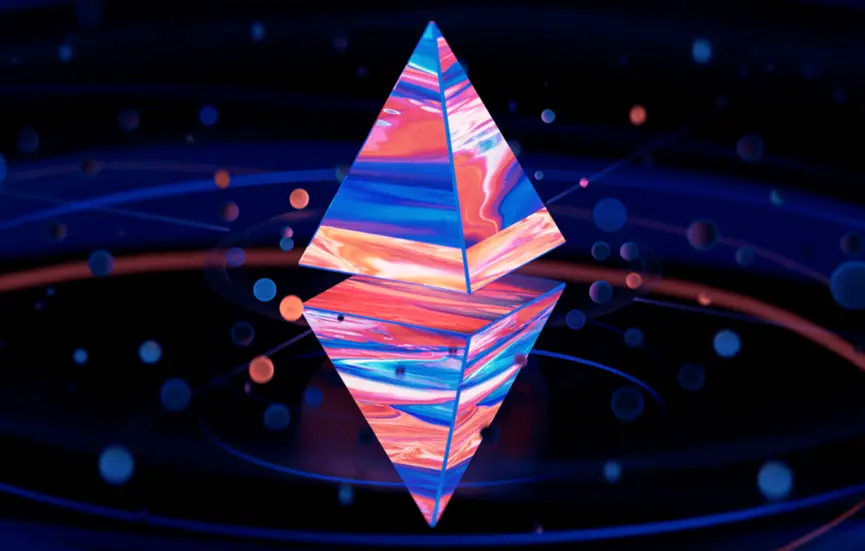Author: Blockchain Knight
In the past week, the hottest topics in the market seem to be related to Ethereum. One is that Vitalik Buterin shared the current dilemmas, challenges, and some solutions of Ethereum during a community AMA, sparking considerable discussion; the other is the sudden theft of over 500,000 Ethereum from Bybit over the weekend. These two events have had completely different impacts, yet both have made Ethereum the focus.
In the past couple of years, the industry's evaluation of Ethereum has often been a rather sarcastic expression: "If you bought Ethereum, you should have paid off all your debts from your previous life," mocking Ethereum's price. After all, the current state of the industry is that the price itself greatly reflects its development situation, such as with Solana next door.
So, looking back at reality, what challenges is Ethereum actually facing that have shaken both its overall market value and community reputation?
Through discussions with several core community members who have long followed Ethereum, they provided quite a few seemingly reasonable insights, including that the Ethereum Foundation has been in a state of "nominal existence," often inactive except for selling ETH; or that the explosion of Layer 2 has weakened Ethereum's inherent value; and that the new narratives popular in the market have basically not emerged on Ethereum.
These descriptions of the problems seem to hit the nail on the head, but I believe this may only be a superficial presentation, and the underlying issues lie elsewhere.
Regarding the study of why large companies fail, there is a bestselling book titled "The Innovator's Dilemma," which is also regarded as one of the 20 most influential business books of the 20th century. The conclusion of the book is that excellent large companies fail because small companies engage in disruptive innovation, thereby encroaching on the market of large companies, while the innovations made by large companies are mostly "sustaining innovations," which cannot prevent small companies from "disrupting" the market of large companies.
The real challenge that Ethereum faces now is precisely this.

Looking back at the birth of the Ethereum mainnet, it has been nearly 10 years. Ten years is not young for a company, especially in the rapidly developing Web3 industry.
Although in a recent interview, Ethereum founder Vitalik Buterin did not acknowledge that Ethereum is a company, stating, "I think Ethereum is a decentralized ecosystem, not a company. If Ethereum becomes a company, we will lose most of the meaning of Ethereum's existence."
However, if Ethereum's development over the past 10 years is not the result of corporate development, it might have taken on a different appearance. After all, in the blockchain field, there is only one project that has truly achieved "de-corporatization"—Bitcoin, and nothing else.
Therefore, the challenges Ethereum currently faces are actually similar issues that all large enterprises encounter: overall innovation is hindered, and the management (Ethereum Foundation) is "resting on its laurels," leading to inefficiency.
Thus, in the interview, Vitalik mentioned that the core way for Ethereum to emerge from its current predicament is to need a new narrative, and this new narrative is essentially innovation. He also talked about "the Ethereum Foundation has started many internal reforms in recent months," which specifically address organizational efficiency issues.
Although Vitalik denies that Ethereum is a company, when organizational problems are exposed, it can only be reformed using the methods of managing a company.
Consequently, another challenge regarding Ethereum's future development has emerged: Is Vitalik ready to become a manager?
Despite being the first to express his stance in the face of numerous challenges, what lies ahead for him is the issue of transforming a large enterprise. After years of wild growth, Vitalik also needs to transition from a technical expert to a "non-entrepreneurial entrepreneur," and even rethink or balance "decentralization." So, is he ready?
After reading the entire interview, I am curious whether Vitalik will face a significant psychological struggle in this transformation, as it requires reshaping not only Ethereum itself but also this soul figure. Or perhaps changing his profile picture over a month ago has already signaled his determination. I don't know, and I don't understand, after all, the "Dragon Slayer Boy" is no longer young, and after experiencing the collision of the world, there will always be some changes.
Finally, if readers want to ask me whether Ethereum can overcome its challenges and my views on its future development, perhaps a down-to-earth summary would be: ETH still has a market value of 330 billion dollars and remains the second-largest crypto project.
免责声明:本文章仅代表作者个人观点,不代表本平台的立场和观点。本文章仅供信息分享,不构成对任何人的任何投资建议。用户与作者之间的任何争议,与本平台无关。如网页中刊载的文章或图片涉及侵权,请提供相关的权利证明和身份证明发送邮件到support@aicoin.com,本平台相关工作人员将会进行核查。




